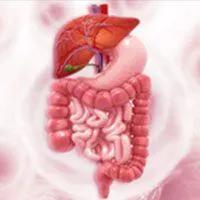
Dr. Kim on Tislelizumab in Advanced ESCC

Sunnie Kim, MD, contextualizes the use of tislelizumab as a frontline treatment option in advanced esophageal squamous cell carcinoma.
Sunnie Kim, MD, assistant professor, medicine — medical oncology, University of Colorado Anschutz Medical Campus, contextualizes the use of tislelizumab (BGB-A317) as a frontline treatment option in advanced esophageal squamous cell carcinoma (ESCC).
The global, phase 3 RATIONALE-306 trial (NCT03783442) investigated the combination of the checkpoint inhibitor tislelizumab and chemotherapy vs placebo plus chemotherapy in the frontline treatment of patients with advanced or metastatic ESCC. This trial met its primary end point of OS improvement with tislelizumab over placebo in the overall population, at 17.3 months and 10.6 months, respectively. This OS benefit was also observed across prespecified subgroups, including PD-L1 status. Of the patients with a PD-L1 score of at least 10%, the OS was 16.8 months in the tislelizumab arm and 10.0 months in the placebo arm.
The findings from RATIONALE-306 support the use of checkpoint inhibitors combined with chemotherapy as the frontline standard of care for patients with advanced ESCC, Kim says. However, it is unknown whether tislelizumab is a more effective immunotherapy agent in this setting than those currently approved in the United States, such as pembrolizumab (Keytruda) and nivolumab (Opdivo), as the agent was not compared with other checkpoint inhibitors in the trial, Kim notes.
Previously, the phase 3 KEYNOTE-590 trial (NCT03189719) investigated frontline pembrolizumab plus chemotherapy vs placebo plus chemotherapy in patients with advanced ESCC. In all patients with this disease, this trial demonstrated a median OS of 12.6 months with pembrolizumab plus chemotherapy vs 9.8 months with chemotherapy alone. Patients with ESCC who had a PD-L1 combined positive score of at least 10 and received pembrolizumab achieved a median OS of 13.9 months vs 8.8 months in those who received chemotherapy alone.
In addition, the phase 3 CheckMate 648 trial (NCT03143153), which evaluated frontline nivolumab (Opdivo) plus chemotherapy vs nivolumab plus ipilimumab (Yervoy) vs chemotherapy alone in patients with advanced ESCC. This trial showed objective response rates of 47%, 28%, and 27% in the nivolumab/chemotherapy, nivolumab/ipilimumab, and chemotherapy alone arms, respectively.
Based on these positive findings with first-line tislelizumab, pembrolizumab, and nivolumab plus chemotherapy in advanced ESCC, chemoimmunotherapy remains the most effective therapeutic option in this population, Kim concludes.




































